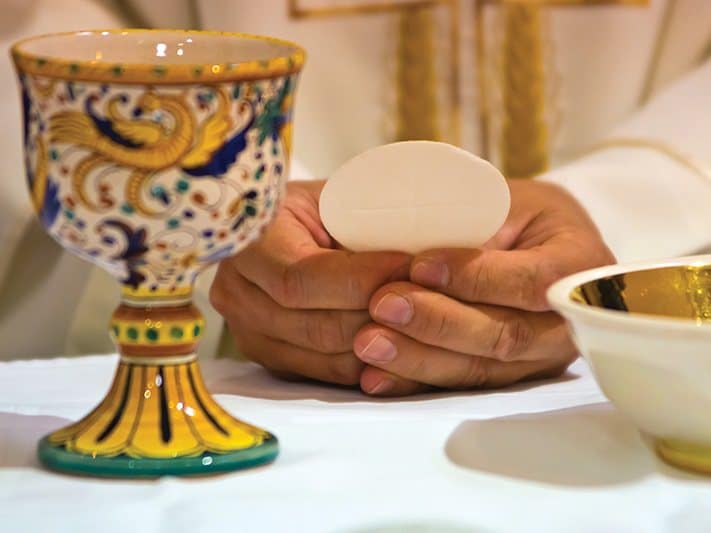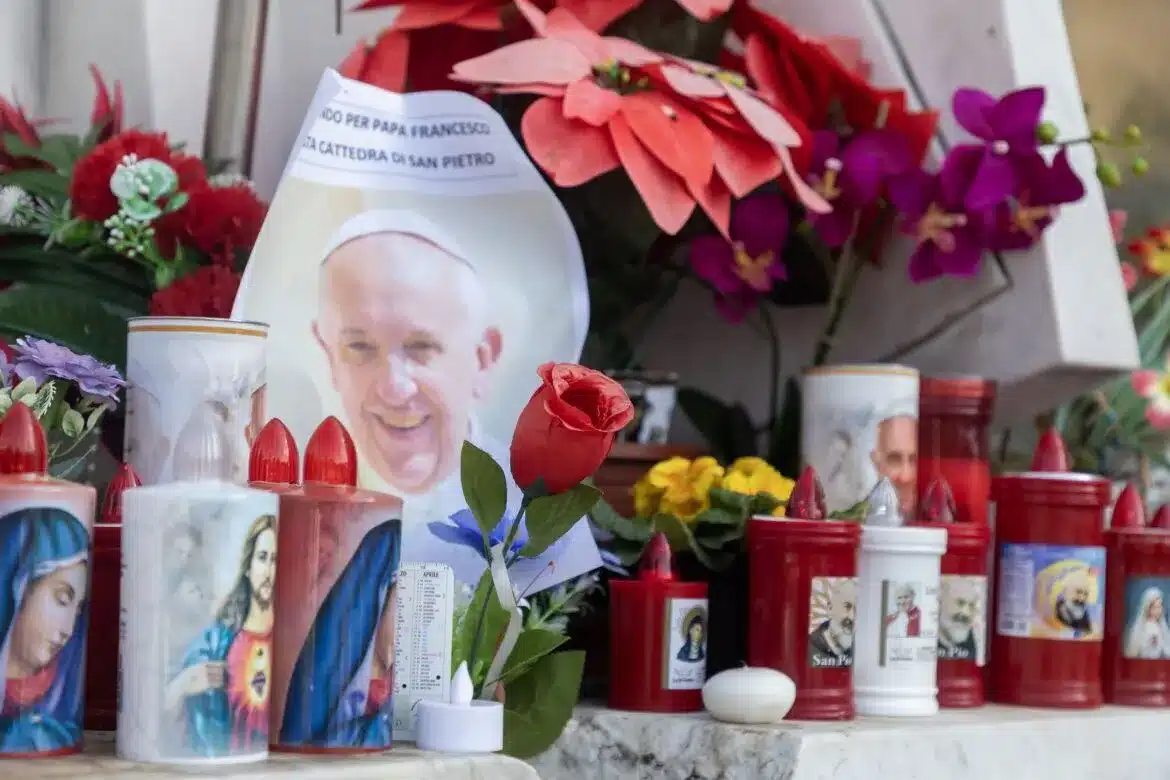What did the Eucharist mean to St. Francis? How did he express his devotion to it?
The Eucharist is the closest connection that any follower of Jesus (Francis included) can get to Jesus. It flows out of our belief in the Incarnation. Francis defended the Eucharist against the Albigensians, the Catholic Church’s strongest critics in his day. Because they taught that everything material is bad and everything spiritual is good, the Albigensians rejected the Eucharist and all the other sacraments. The feast of Corpus Christi, which had begun in Belgium, was extended to the worldwide Church about 30 years after Francis died.
In 1215, Pope Innocent III held the Fourth Lateran Council, which lasted only a month but had a major impact, especially on the celebration and reception of the Eucharist. That council legitimated the term transubstantiation and introduced the Easter duty (confession of mortal sins at least once a year), encouraging at least yearly reception of the Eucharist. Many people were so convinced about their unworthiness that they were content simply to look at the consecrated host during Mass or at Benediction.
Francis wrote several letters to encourage greater reverence for the Eucharist. Eucharistic devotion was the subject of several of his Admonitions to the friars. Francis was particularly concerned about the cleanliness of churches, especially altar linens and liturgical vessels. St. Clare, who shared this concern, embroidered many corporals and purificators for use at Mass.
Members of the Franciscan family, especially Secular Franciscans, eventually received holy Communion on specified liturgical feasts. In some ways, they were ahead of the frequent Communion promoted by St. Pius X more than 100 years ago for people properly prepared and disposed.








